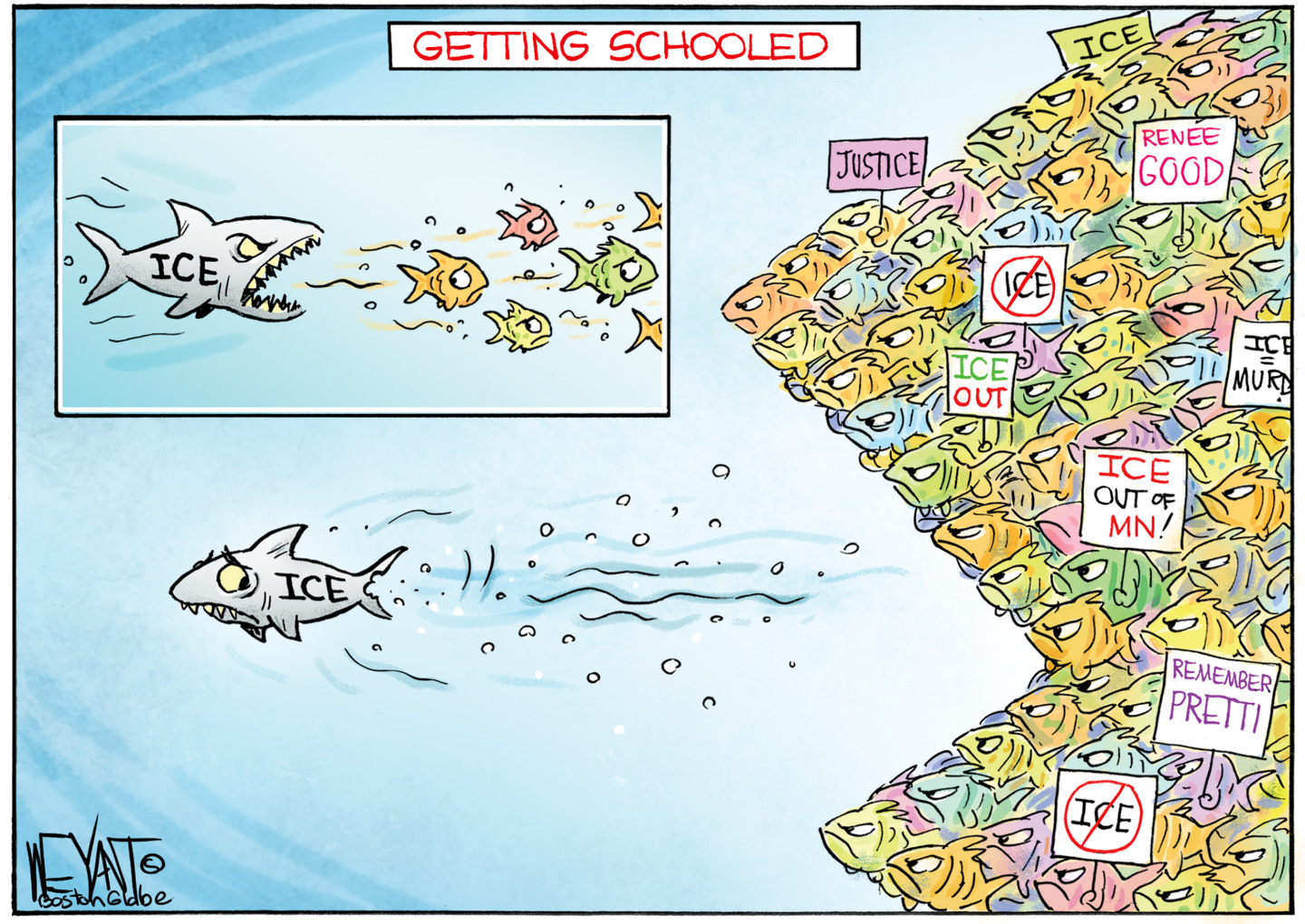The Feds' 'eat less' guidelines: Too vague to help?
The USDA's new Dietary Guidelines tell Americans, for the first time ever, to eat less — but fail to specify which foods to avoid. Is this really fighting the obesity epidemic?

Earlier this week, the U.S. Department of Agriculture released its Dietary Guidelines for Americans, and, for the first time ever, advised people to not only eat better but also to "eat less." Agriculture Secretary Tom Vilsack said "the bottom line is that most Americans need to trim our waistlines to reduce the risk of developing diet-related chronic disease." Will these new guidelines really help Americans to get healthy? (Watch a report about the new guidelines)
This a big step: While it may seem "obvious," telling Americans to "eat less" is actually "major progress" for federal regulators who have long been wary of the powerful food lobby, says Andrew Martin in The New York Times. The guidelines are also more specific and actionable than in years past, though, funnily enough, while they say to "eat less," the suggested daily caloric intakes remain unchanged.
"Government's dietary advice: Eat less"
The Week
Escape your echo chamber. Get the facts behind the news, plus analysis from multiple perspectives.

Sign up for The Week's Free Newsletters
From our morning news briefing to a weekly Good News Newsletter, get the best of The Week delivered directly to your inbox.
From our morning news briefing to a weekly Good News Newsletter, get the best of The Week delivered directly to your inbox.
But the guidelines are too general: These recommendations are "useful, common-sense advice," says Rebecca Marx in The Village Voice. But the public would be better served by more specific suggestions. Given that 34 percent of adults and 20 percent of children in this country are obese, "it would be nice if the guidelines warned people away from specific foods instead of talking around them" — like steering people away from "snack cakes" or "ho-hos" instead of "refined grain foods." That would really help the push to have Americans "eat less crap."
"USDA Dietary Guidelines: Eat less crap"
And politics gets in the way: These dietary recommendations are a "big disappointment," says NYU professor of nutrition Marion Nestle at her Food Politics blog. They cite specific foods when they say to eat more of something, but they talk vague nutrients like "solid fats" and "added sugars" when they say to eat less of something, like meat. That's "no doubt" to soften the blow on the meat industry. And the recommendations are all aimed at individuals, but the food industry and restaurants need to do better, too.
"2010 Dietary Guidelines, deconstructed"
A free daily email with the biggest news stories of the day – and the best features from TheWeek.com
-
 Bad Bunny, Lamar, K-pop make Grammy history
Bad Bunny, Lamar, K-pop make Grammy historySpeed Read The Puerto Rican artist will perform at the Super Bowl this weekend
-
 Political cartoons for February 2
Political cartoons for February 2Cartoons Monday’s political cartoons include ICE getting schooled, AI in control, and more
-
 Democrats win House race, flip Texas Senate seat
Democrats win House race, flip Texas Senate seatSpeed Read Christian Menefee won the special election for an open House seat in the Houston area